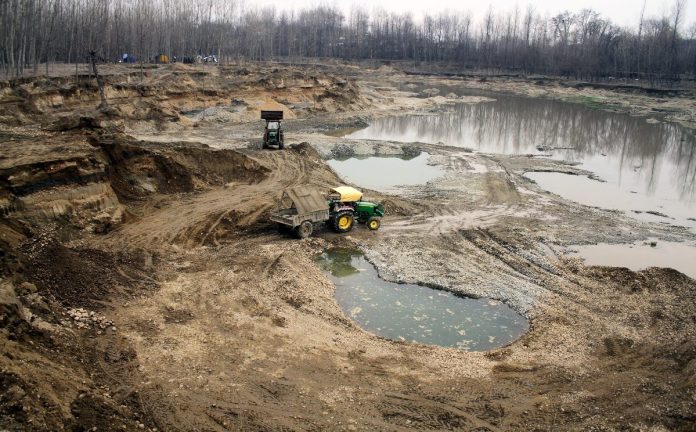The ongoing issue of illegal mining in Jammu & Kashmir, particularly in its vital water bodies, presents a troubling case of administrative inertia and environmental neglect. Despite repeated reminders and explicit directives from the National Green Tribunal, three Deputy Commissioners, along with senior officials from the Jal Shakti and Geology & Mining Departments, have failed to submit critical status reports on this issue. This reflects not only a disregard for legal mandates but also a deeper systemic failure in safeguarding the region’s fragile ecological balance. The urgency of the situation stems from the NGT’s July 2024 order, which followed media reports highlighting the rampant illegal mining across various districts of Jammu & Kashmir. The Jammu and Kashmir Pollution Control Committee, in response to the NGT’s directive, set up two separate committees to investigate the mining activities in both the Kashmir and Jammu divisions. Their findings, though alarming, have yet to galvanise the necessary action from key departments. The absence of status reports from officials responsible for Kathua, Samba, and Ganderbal districts, as well as the Geology & Mining Department and the Jal Shakti Department, underscores a concerning lack of accountability.
Water bodies in Jammu & Kashmir serve as crucial lifelines, supporting not only local biodiversity but also the agricultural and economic activities of millions of people. Illegal mining, particularly of minor minerals such as sand and gravel, poses a grave threat to these water bodies. In the Ganderbal district, for example, a report by the JKPCC committee highlights flagrant violations of environmental norms. The committee observed uncontrolled illegal mining, with blocks not properly demarcated and excavation extending dangerously close to the riverbanks. Permissible distances from the riverbanks, which are essential for maintaining the stability of these natural structures, were blatantly disregarded. In some areas, the depth of the sand mining exceeded permissible limits, increasing the risk of bank collapses and potential damage to nearby infrastructure, such as bridges. The long-term environmental consequences are already becoming apparent, with the degradation of riverbeds, erosion of peripheries, and the uprooting of riverside vegetation. Unchecked mining can exacerbate floods, disturb irrigation patterns, and even affect groundwater levels, jeopardising agriculture, drinking water supply, and the overall ecological balance.
What is most disturbing about this issue is the apparent indifference of key administrative figures. Despite being repeatedly reminded by the JKPCC, the concerned DCs and departments have failed to provide status reports. The JKPCC’s reminders, issued since July 2024, have been met with silence or inaction.
The NGT’s role in this matter is pivotal. Its intervention has helped bring this issue to the fore. However, the tribunal’s efforts will only be effective if they are supported by timely and comprehensive reports from the concerned departments. The lack of compliance from these officials not only undermines the NGT’s authority but also sets a dangerous precedent for future environmental protection efforts. It is crucial that the NGT take a strong stance in this case. Officials who have failed to submit their reports must be held accountable for their inaction. The possibility of contempt proceedings should not be ruled out, as such a measure may be necessary to ensure that environmental regulations are taken seriously. Moreover, there is a pressing need for systemic reforms in how environmental protection is enforced in Jammu & Kashmir.
The larger lesson from this ongoing crisis is that environmental protection cannot be left to chance or the whims of individual officials. It requires a coordinated, multi-agency effort, backed by strong legal frameworks and political will. The unchecked exploitation of natural resources, as seen in Jammu & Kashmir’s illegal mining operations, must be addressed with the seriousness it deserves.
Trending Now
E-Paper


